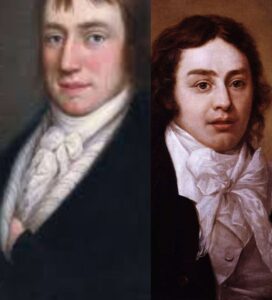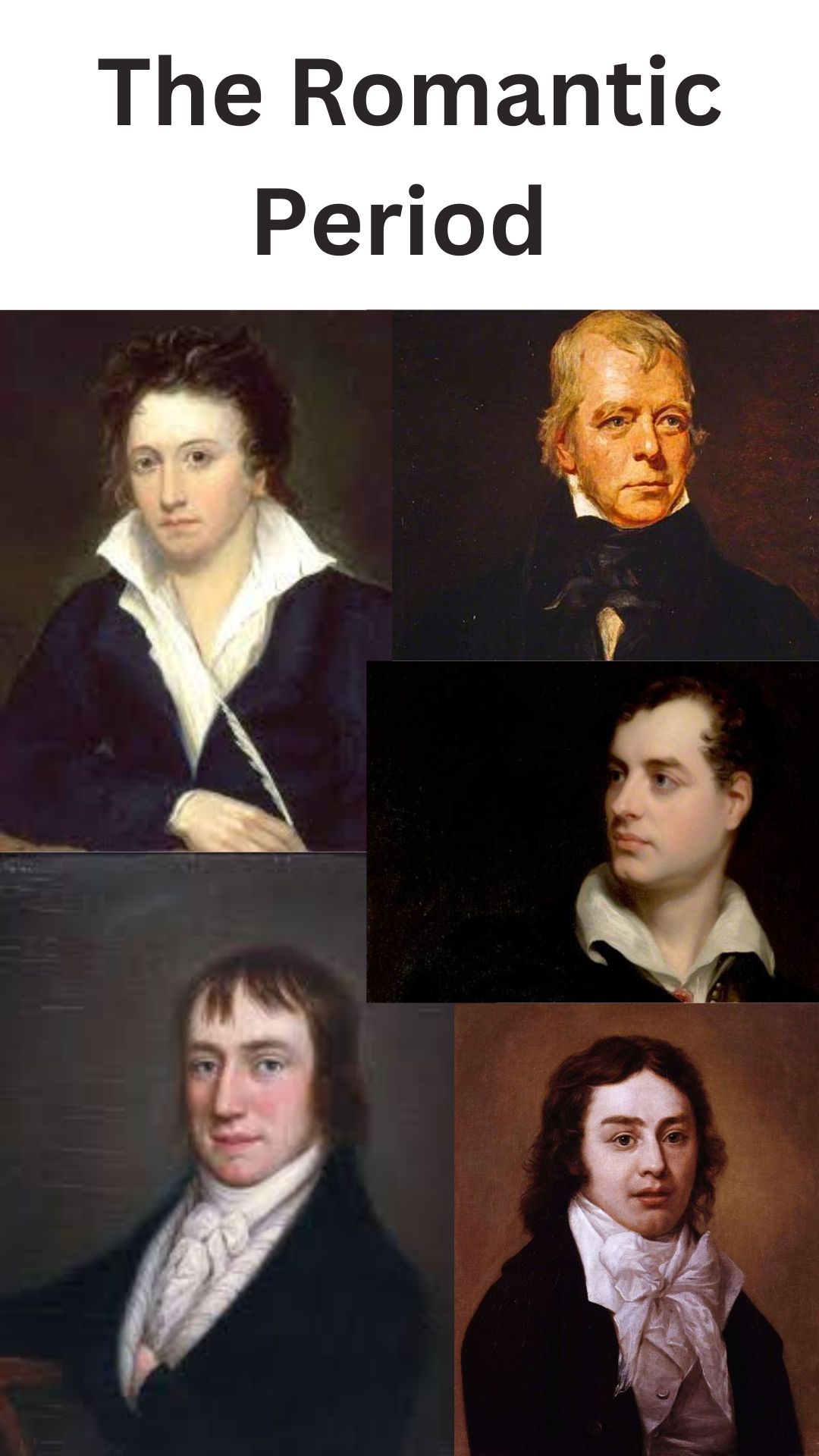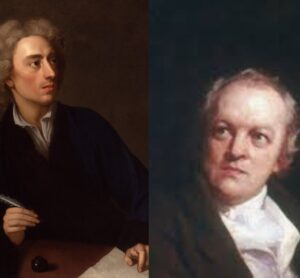The English literary landscape underwent a tremendous change during the Romantic Period, which ran from 1798 to 1850. A newfound appreciation for nature and the creative process emerged during this period of deep emotional outpouring and independence. Romantic authors who appeared at this time are still recognised as significant characters in literary history and are relevant to UGC NET English preparation.
William Wordsworth, Samuel Taylor Coleridge, Lord Byron, Percy Bysshe Shelley, and John Keats are a few notable Romantic Period authors. Their works delved into subjects like the complexity of human emotions, the sublime, the force of nature, and the sublime. They rejected the limitations of rationality and praised imagination, spontaneity, and the inner world of the person.
For instance, Wordsworth’s poetry emphasised the intimate bond between people and environment, whereas Coleridge’s poetry explored the enigmatic and paranormal. Shelley’s imaginative and idealistic writings subverted social conventions, and Byron’s theatrical works and impassioned poetry expressed his rebellious nature. The poetic poetry of Keats radiated sensuality, beauty, and introspection.
Romantic authors aimed to arouse strong feelings, elicit reflection, and motivate readers to accept their uniqueness. Their writings not only changed the literary landscape of their period but also had an impact on following movements like transcendentalism and symbolism.
For those aiming for the UGC NET in English, studying the writings of these significant Romantic authors is essential. They provide a lot of information for critical analysis and interpretation thanks to their profound insights, avant-garde methods, and investigation of complicated human experiences.
In conclusion, the Romantic Era saw the emergence of significant authors who promoted uniqueness, feeling, and the capacity for creativity. Among others, Wordsworth, Coleridge, Byron, Shelley, and Keats all made a lasting impression on English literature. Examining their writings is crucial for preparing for the UGC NET in English since it gives one a better knowledge of the Romantic movement and its continuing influence on literature.
The Romantic Period (1798-1850) : Important Writers for
UGC NET English
William Wordsworth
William Wordsworth is a well-known Romantic-era poet who has a substantial influence on English literature. Wordsworth, a poet who was born in 1770, made a significant contribution to literature. His poetry stands out for its emphasis on imagination and personal experiences as well as its relationship to environment.
“Lyrical Ballads,” a collection of poems co-written by Wordsworth and Samuel Taylor Coleridge, marked a dramatic change in English poetry. His poems masterfully capture the splendour and tranquilly of the natural world, frequently capturing commonplace events and everyday occurrences. Wordsworth intended to awaken readers to the magnificent features of nature and evoke awe and amazement through his evocative language and vivid pictures.
One of Wordsworth’s most known pieces, “I Wandered Lonely as a Cloud” (also known as “Daffodils”), best captures his poetic sensibility. His strong love of the natural world is captured in the poem, which also incorporates personal contemplation. Also covered in “Lines Composed a Few Miles Above Tintern Abbey” is the subject of memory and its capacity for transformation.
Through his poetry, Wordsworth expresses his conviction about the value of each person and the close relationship among nature with the human mind. His idea of the “egotistical sublime” emphasises how vitally important individual experiences and feelings are to poetry.
Wordsworth’s poems had a significant impact on the Romantic movement. He paved the way for later poet generations with his great appreciation of nature, stress on the individual, and belief in the creative potential. Readers are still moved by his writings, which give profound insights into the human condition and inspire awe at the magnificence of nature.
In summary, William Wordsworth’s poetry is distinguished by his awe of nature, investigation of unique experiences, and faith in the creative power of the mind. He is now recognised as one of the most important and renowned poets in history thanks to his contributions to the Romantic Era and English literature.

S.T.Coleridge
English poet, philosopher, and critic Samuel Taylor Coleridge was a significant figure of the Romantic Era. Coleridge, who was born in 1772, is well renowned for his inventive poetry and thought-provoking philosophical principles.
The investigation of supernatural topics and the use of symbolic language and vivid imagery distinguish Coleridge’s poetry. His well-known poem “The Rime of the Ancient Mariner,” which explores guilt, atonement, and the might of nature, is a disturbing story. Coleridge’s interest with the enigmatic and the sublime is evident in “Kubla Khan,” another famous work that is dreamy and visionary.
In addition to his poetry, Coleridge also produced a number of philosophical and analytical works, including “Biographia Literaria,” which made a significant contribution to literary theory and criticism. He was an essential contributor to the development of the Romantic literary movement and co-founded it.
Future generations of authors and intellectuals have been greatly influenced by the concepts and lyrical devices of Coleridge. His investigation into the imagination and his notion of the “willing suspension of disbelief” have had an ongoing impact on literature and philosophy.
In conclusion, Samuel Taylor Coleridge’s poetry and philosophical viewpoints had a profound influence on English literature during the Romantic Era. Readers are captivated by his visionary works, such as “The Rime of the Ancient Mariner” and “Kubla Khan,” because of their vivid imagery and provocative subjects. Coleridge’s accomplishments as a poet, philosopher, and critic solidify his place in the literary canon, and his writings continue to be crucial for comprehending the spirit and core of the Romantic Era.
Walter Scott
Scottish author, poet, and historian Walter Scott was a well-known figure of the Romantic Era. Scott, who was born in 1771, is largely regarded as the creator of the historical fiction subgenre. His writing has had a significant influence on literature and cultural identity.
“Ivanhoe,” “Rob Roy,” and “Waverley,” among Scott’s other well-known books, are adored for their captivating stories, colourful characters, and accurate historical settings. Through his writings, Scott masterfully brought the struggles, adventures, and customs of several eras to life, engrossing readers with his masterful narrative and meticulous attention to historical detail.
Scott’s poetry, best demonstrated by pieces like “The Lady of the Lake” and “Marmion,” is not just limited to his books; it also displays his passion for Scotland’s natural beauty and his strong sense of Scottish heritage.
Beyond his literary accomplishments, Scott contributed significantly to the resurgence of Scottish cultural pride by igniting a passion for Scottish customs and mythology. His influence went beyond that of his contemporaries, affecting writers of later generations and assisting in the growth of the historical fiction subgenre.
In conclusion, Walter Scott has cemented his position as a key character of the Romantic Era through his writings, including his novels, poetry, and cultural contributions. His skill at fusing fact and fiction, together with his fascinating storytelling, continue to motivate and enthral readers all over the world. As a creator of the historical book genre and a defender of Scottish culture, Scott leaves behind an enduring and important legacy.
George Gordon Lord Byron
Gordon, George A well-known English poet of the Romantic Era, Lord Byron is most frequently referred to as just Lord Byron. Byron, a poet who was born in 1788, is renowned for his enthralling beauty, intense feelings, and investigation of both societal and personal subjects. Among his best pieces are “Don Juan,” “Childe Harold’s Pilgrimage,” and “She Walks in Beauty.” Byron’s poetic voice was disobedient and unafraid to break the rules of society and promote individualism. Lord Byron has earned a reputation as one of the most revered and important poets of the Romantic era thanks to his contributions to poetry and his captivating charisma. Readers are still motivated and enthralled by his enduring influence on literature today.
P.B.Shelly
P.B. Shelley, often known as Percy Bysshe Shelley, was a well-known Romantic-era English poet. The poetry of 1792-born Shelley embodied inventiveness, idealism, and a disobedience to societal expectations. His well-known compositions, including “Ode to the West Wind,” “Prometheus Unbound,” and “Ozymandias,” displayed his mastery of the lyrical form and explored themes of liberation, the natural world, and the tenacious human spirit. The Romantic literary movement was forever changed by Shelley’s poetic expressiveness and fervent expression. His contributions to poetry are honoured for their profound wisdom and aesthetic excellence, solidifying his reputation as a renowned Romantic poet.
John Keats
Born in 1795, John Keats was a significant Romantic-era English poet. Keats is regarded as one of the best poets to have ever written in the English language because of his exquisite poetry and in-depth analysis of subjects like beauty, love, and mortality. His well-known compositions, like as “Ode to a Nightingale,” “Ode on a Grecian Urn,” and “To Autumn,” demonstrate his capacity to arouse strong emotions with vivid imagery and complex language. Keats’ poetry is distinguished by a deep and sensual relationship with nature. His untimely passing at the young age of 25 added to the mystique surrounding his writing and cemented his place in Romantic literature as a beloved author.
Thomas Love Peacock
English novelist, poet, and satirical Thomas Love Peacock was born in 1785. His distinctively witty and sardonic writing style throughout the Romantic Era was evident in all of his writings. Novels by Peacock, such as “Headlong Hall,” “Nightmare Abbey,” and “Crotchet Castle,” were notable for their witty critiques of intellectual and societal tendencies of the day and keen social satire. Peacock’s writings provided a unique voice in Romantic literature with a blend of sarcasm, intellectual dialogue, and humour. His writings are still valued for their sharp humour and perceptive observations, which has cemented his status as an important character in the era’s literary environment.
Charles Lamb
Famous English essayist and poet Charles Lamb was born in 1775. Lamb is still regarded as a revered representative of the Romantic Era because of his wit, charm, and captivating writing. His collection of essays, “Essays of Elia,” displayed his distinctive fusion of introspective contemplation, literary analysis, and social commentary. Themes like friendship, love, and the complexity of human emotions were explored throughout Lamb’s works as well as the nuances of everyday life. Readers were won over by his personal and relatable writing style, and audiences are still drawn to his ageless wisdom. Through his literary works, Charles Lamb has cemented his place in history as a key Romantic character.
Thomas De Quincy
An important English essayist and writer named Thomas De Quincey was born in 1785. “Confessions of an English Opium-Eater,” his most famous work, had a tremendous impact on the Romantic Era. De Quincey’s books are known for their examination of dreams, the imagination, and the more sinister sides of human nature. Readers were enthralled by his distinct storytelling technique, which was paired with reflection and literary analysis, and he became a well-known personality in English literature. De Quincey stood out for his ability to meld vividly descriptive language with insightful psychological understandings. His writing is still valued for its examination of human consciousness and its ongoing significance in the literary world.
Jane Austen
In 1775, renowned English author Jane Austen was born. She penned iconic novels including “Pride and Prejudice,” “Sense and Sensibility,” and “Emma,” among others. In addition to exploring topics of love, marriage, social status, and societal standards, Austen’s works focused on the lives of women in the Georgian and Regency eras. Austen’s writing demonstrated her grasp of sarcasm and social satire through her sharp wit, perceptive observations, and endearing characters. Her books’ enduring relevance and incisive depictions of interpersonal connections keep readers enthralled. One of the most well-known and important authors of the 19th century, Jane Austen’s contributions to literature have cemented her place in that elite group.
Conclusion
In summary, the Romantic Period (1798–1850) is a noteworthy period in literary history, characterised by the contributions of notable authors who influenced the development of English literature. William Wordsworth, Samuel Taylor Coleridge, Percy Bysshe Shelley, Walter Scott, Mary Shelley, and other authors probed the depths of human feeling while embracing the power of imagination and praising the magnificence of nature. Their writings have an enduring influence on the literary world and continue to enthral readers. By focusing on individualism, the paranormal, and the expression of strong emotions, Romantic authors built a new literary landscape that had an impact on writers of later generations. Their contributions continue to be an essential part of the canon of literature, motivating both readers and writers with their profound understanding of the human condition.
Read More: Augustan Age/18th Century Literature (1700-1800) : Important Writers for UGC NET English

